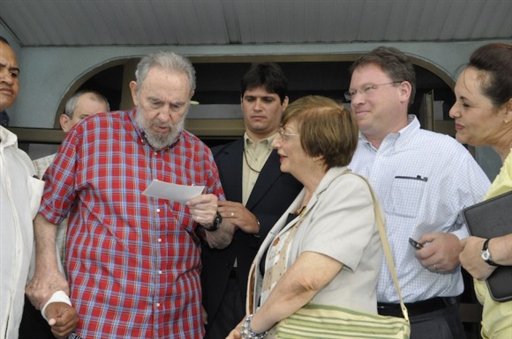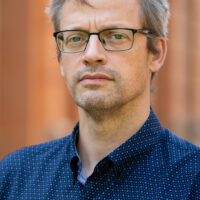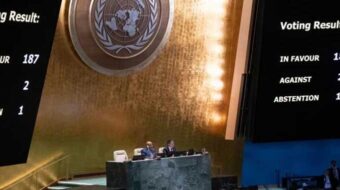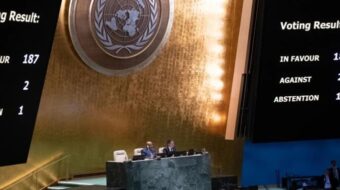
After Fidel Castro stirred up some controversy last week with an offhand comment made to The Atlantic journalist Jeffrey Goldberg about ineffectiveness of Cuba’s socialist “model,” Goldberg says the former Cuban president may have sought to alleviate some controversy within Cuba’s governing institutions by “walking back” his comment.
In explaining further his take on Fidel’s remarks, Goldberg ended up describing Castro positively, declaring some of his comments as “sane” and “moral.”
During a several hours-long interview over the course of three days in Havana, Goldberg asked Castro about Cuba’s economy in the context of a larger discussion of Latin America and trade. In a manner that Goldberg described as almost a “throw away remark” Castro said, “The Cuban model doesn’t even work for us anymore.”
Interpreting the remark literally, and borrowing insights about the context of the comment from his friend Julia Sweig, an expert on Cuba with the Council on Foreign Relations, who traveled with him and listened to the conversation, Goldberg wrote that the former president’s comments suggested the need for big changes in Cuba’s political and economic system, changes that have been underway for several years now, including in the final years of Fidel’s presidency.
In his original post, Goldberg went on to describe some of those changes and even hinted that the ongoing U.S. policy toward Cuba is “hypocritical” and “stupidly self-defeating.”
After Goldberg’s reporting was published at The Atlantic’s website late last week, President Castro delivered a talk Friday, Sept. 10, at the University of Havana promoting his new book, “The Strategic Counteroffensive,” in which he said Goldberg had misinterpreted his comment.
Though insisting Goldberg had quoted him accurately and praising Goldberg’s skills and professionalism, Castro said, “the truth is that the meaning of my response was exactly the opposite of the interpretation made by both American journalists of the Cuban model.”
“My idea, as everybody knows,” Castro explained, “is that the capitalist system does not work anymore either for the United States or the world, which jumps from one crisis into the next, and these are ever more serious, global and frequent and there is no way the world could escape from them. How could such a system work for a socialist country like Cuba?”
This clarification of the comment didn’t sit well with Goldberg. In a teleconference with reporters Sept. 13, in which both Goldberg and Sweig sought to clarify their perspective on the situation, Goldberg expressed some doubts about Castro’s response. “I don’t know how you can interpret [the quote] as its opposite,” Goldberg said in defense of his reporting.
Julia Sweig, a senior fellow at the Council on Foreign Relations, added that Castro’s “clarification was intended to signal to certain domestic constituents.” She said “it’s common knowledge” and “widely discussed” in Cuba that they are going to “fix the model” the questions are how and “where they’re going to go in terms of economic liberalization.”
But Sweig acknowledged this did not mean throwing socialism overboard. She said, “What he wanted to say is that although we’re changing our model, that doesn’t mean that we’re importing U.S.-style capitalism.”
Sweig added she believes both Fidel and Cuban President Raul Castro are of a single mind on the need for these changes to Cuba’s economic system.
Cuba’s leading institutions of governance have set the stage for a number of important systemic changes toward a market-oriented economy, Sweig explained. New proposals include private ownership of land, the shift from collective farming to cooperative farming with private ownership rights, the licensing of the 250,000 to 500,000 small businesses with non-family employees (as long as social security taxes are paid), and introduction of limited foreign investments in real estate.
Just this week, the Cuban government announced a plan to shift 500,000 government workers into the private sector in order to cut unsustainable budget expenditures.
Sweig said Cuba’s internal changes and other global realities show that U.S. attempts at economic isolation of Cuba have failed and are unnecessary.
The embargo is not a foreign policy; it is a domestic policy aimed at nothing more than addressing “a perception of the Cuban American vote” in Florida, she said. “I think it’s time for the United States to recognize that 50 years of one policy haven’t achieved the intention which was to block the revolution, stop them from exporting it, and overthrow etc.,” she noted. “I think it is time to take ‘yes’ for an answer.”
“To be fair,” she continued, “this administration, the Obama administration, while moving very slowly, recognizes that this is an obsolete policy.”
Right now, other major foreign policy considerations have pushed Cuba policy to the back burner and the Florida issue remains a stumbling block in terms of domestic U.S. elections, she said, describing as positive President Obama’s lifting of harsh Bush era travel bans on Cuban Americans and recent considerations in Congress to change the rules governing trade and travel with Cuba.
“I think it is just a matter of time,” she indicated, referring to the likelihood of lifting the embargo.
For his part, Goldberg initially insisted that Castro’s motives for opening this discussion were personal rather than part of a strategic Cuban foreign policy initiative. “I think it’s Fidel wanting to insert himself on the international stage a little bit,” he said.
Goldberg revisited Castro’s original remarks to him on anti-Semitism. In the original interview Castro said Holocaust denial and anti-Semitism from some quarters, especially in the Iranian government, were an anathema and especially harmful to pursuing peace.
To reporters, Goldberg said, “I have no way of judging this for sure, I can’t look into a man’s heart, but I think that the idea of Holocaust denial in particular seems to genuinely offend him, as it should offend any sane moral person. And I think he had a very specific strong feeling to what Ahmadinejad has been saying.”
Goldberg described his experience with Castro as “very spontaneous.”
“In other words,” he added, “I don’t think this was a Foreign Ministry derived plan.”
“Fidel’s Fidel,” Goldberg explained. “It’s good to be in essence the retired king, and I think a lot of it has been spontaneous. I have no doubt that the Council of State, the Foreign Ministry, and various other people would like to harness his new energy … in ways they thought were productive.”
“He wants to talk about Iran one day, and go to the Aquarium the next, and that’s what he’s going to do,” Goldberg insisted.
Sweig took a different tack and suggested Fidel’s actions may not be an official act but were by no means “in contradiction” to Raul Castro’s agenda.
When pressed further on whether or not the trip and the comments may have originated as an unofficial signal in favor of resetting U.S.-Cuba relations, Goldberg backed away a bit.
“It is very hard to see the deliberateness of what we experienced when we were there. It might be true that there might be a deliberateness, or that, that Fidel certainly didn’t do what he did and say what he said without Raul’s knowledge and approval. Those things are all possibilities. We have no way of discerning that.”
“Functionally,” Goldberg went on, “I would have to say yes, some of the things he is doing could set the stage for a slightly different relationship between the U.S. and Cuba.”
Sweig agreed, but emphasized that changes in U.S. policy toward Cuba will happen only after domestic political dynamics within the U.S. change in favor of opening friendlier relations with the island country.
Photo: Fidel Castro, left, stands with U.S. journalist of The Atlantic, Jeffrey Goldberg, second from right, and Cuban Jewish Community President Adela Dworin, third from right, at the National Aquarium in Havana, Cuba, Aug. 30. (Estudios Revolucion, Cubadebate)

MOST POPULAR TODAY

Zionist organizations leading campaign to stop ceasefire resolutions in D.C. area

High Court essentially bans demonstrations, freedom of assembly in Deep South

U.S. imperialism’s ‘ironclad’ support for Israel increases fascist danger at home


UN warns that Israel is still blocking humanitarian aid to Gaza






Comments